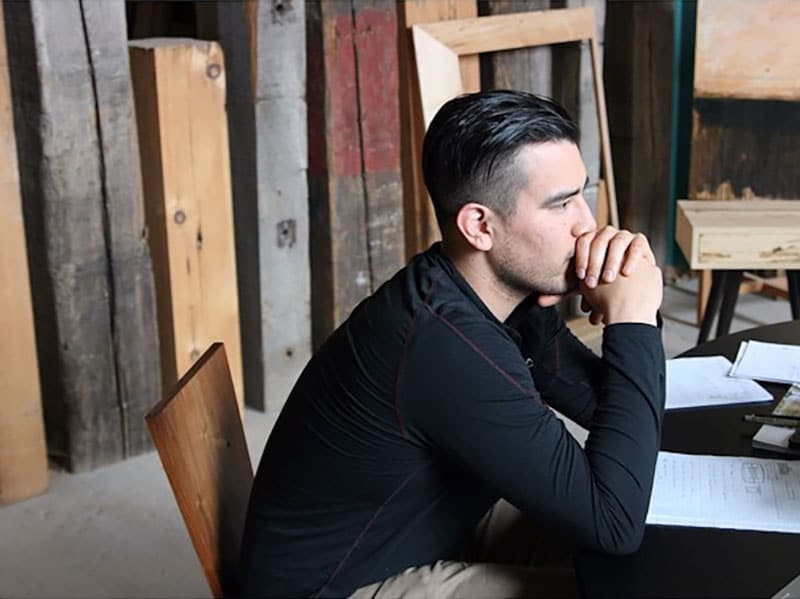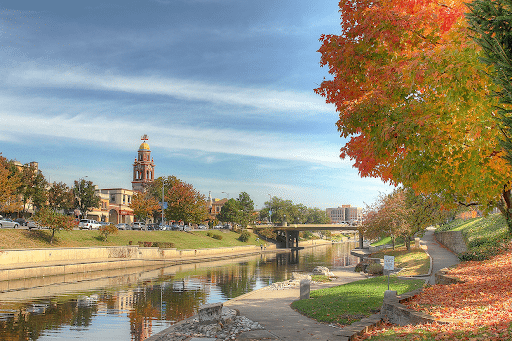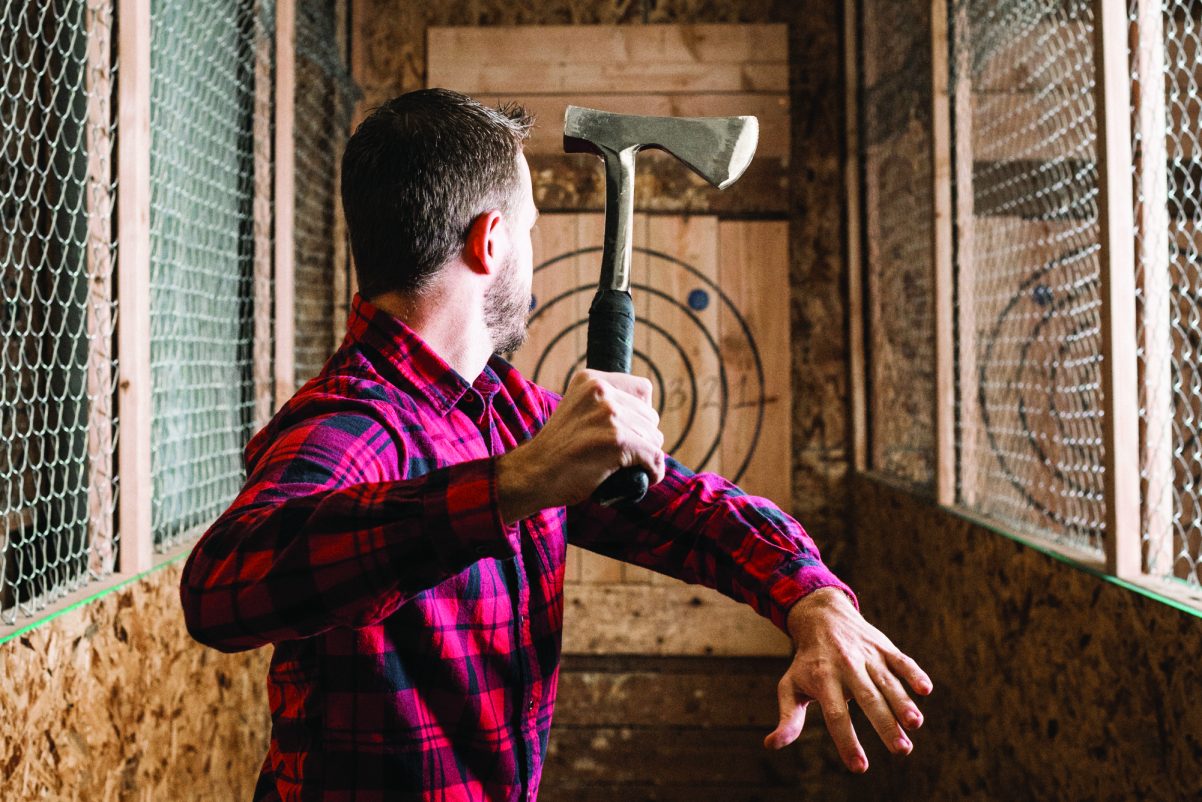From the front of the home, you are greeted with a light blue container top and a gray bottom dotted with small rectangular windows in pairs. The porch offers an unassuming entrance to what you’ll find inside: more than 2,500 square feet of airy space with a creative designer’s touch, from the flooring to the bed sheets to the original artwork adorning the walls.
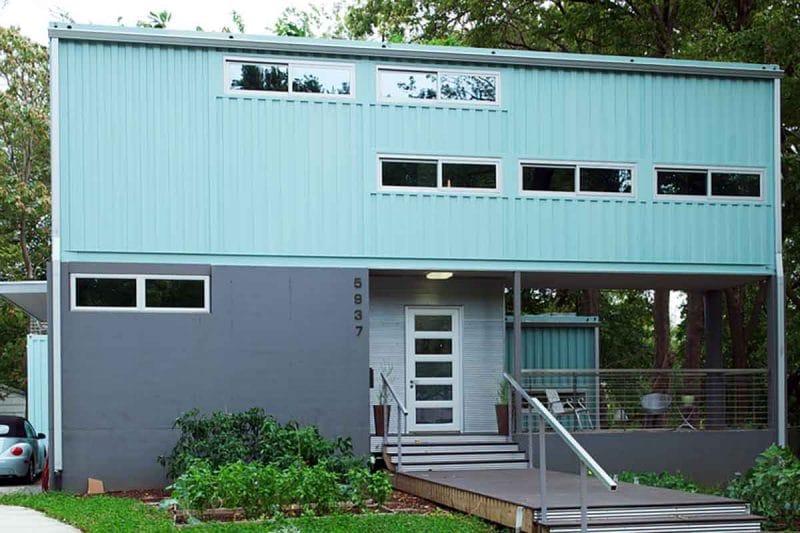
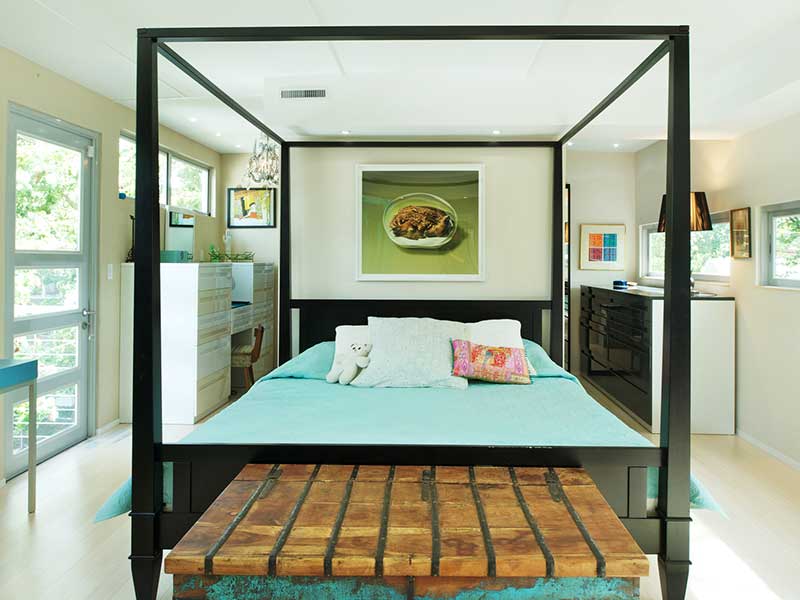
Although container homes are sometimes the cheaper building option, Debbie used the extra money to add features with a lot of glass and high-end details. Her design creates a big feel with taller ceilings that range from 9.5- to 12-feet high. The home’s container walls are light with blues, greens, aquas, and turquoises that create a calming backdrop to the hand-picked art and furniture that she selected for each space. The creation took nearly three years to build. It uses a steel and concrete framework that now includes three bathrooms, a living area, a dining area, two bedrooms, and an office. A floating staircase takes you to the second level of the home.

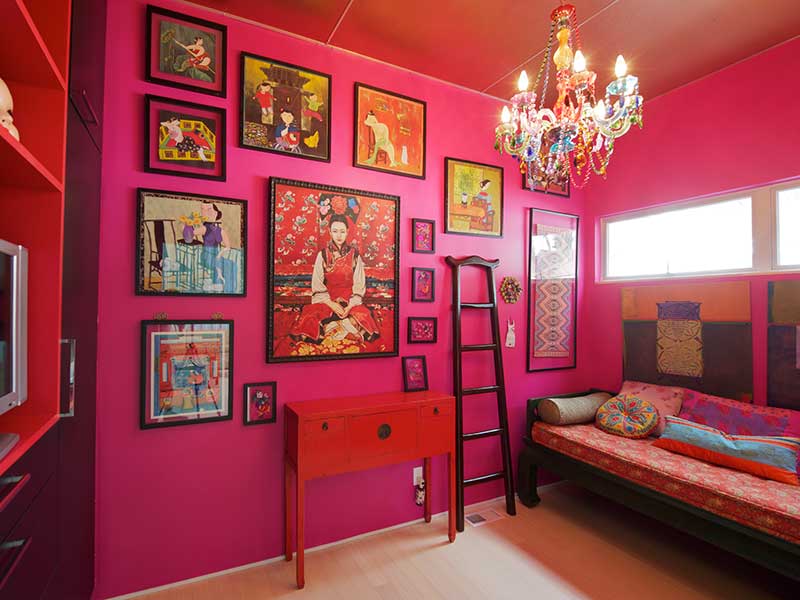
“I wanted to build tiny and upscale,” she says. “It is going against the idea of affordable container homes, and instead I thought how do you cram in and have a beautiful kitchen and beautiful bathroom and exactly what you need? It’s about design and efficiency.”
Debbie used new rather than used containers to make sure that they were livable and ready. The five containers flow seamlessly into each other. Cubby shelving, minimalist sinks, and other rectangular themes highlight rooms throughout the home.
The architect she worked with, Laura Lesniewski of BNIM, an architectural firm, says the space with five containers worked from a spatial perspective. She and Debbie were limited by the containers’ defined sizes, but they learned to appreciate and respect the structure they were working with.
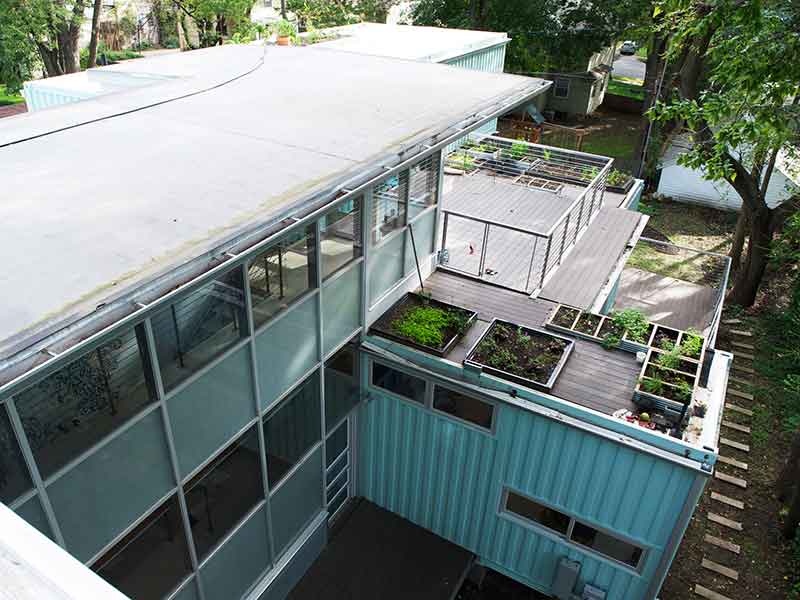
Container homes are just one of Debbie’s creative endeavors. She is an industrial designer who has worked as a toy designer and is a Matthew Kenney-trained raw food chef.
Debbie’s latest project, which she is calling Home Grown on 20th, catches momentum from the tiny-house movement. The first container home she built for the project, a 1,000-square-foot two bedroom, is currently for sale. It features a raised basement, full master bedroom and closet, and a full bathroom. She intends to build six more container homes in the Washington-Wheatley neighborhood in Kansas City.
One advantage of a one-container home is that it can be assembled off site in a controlled environment away from weather and then transported to the site, Laura says. It can also be put together quickly.
“This is a big-heart execution, and maybe I’ll make money someday,” Debbie says. “If not, I’ve left some good stuff around.”
Find Debbie’s five-container home on Airbnb by searching Kansas City and “Art Infused Modern Home.” Prices vary depending on how long you stay, and up to four people can stay in the home.
Photos // Matt Kocourek
Related Posts
Kansas City’s Master Furniture Maker
Matt Castilleja creates world-class bespoke furniture in the heart of Kansas City.
How We Do Kansas City
Get in on what we’ve known all along. Kansas City is a city of champions.
Learn to Throw an Axe in Kansas City
Taking the outdoors to the West Bottoms, two entrepreneurs have brought urban axe throwing to Kansas City. Blade & Timber founders Matt Baysinger and Ryan Henrich got their start in the escape room business with Breakout KC.

